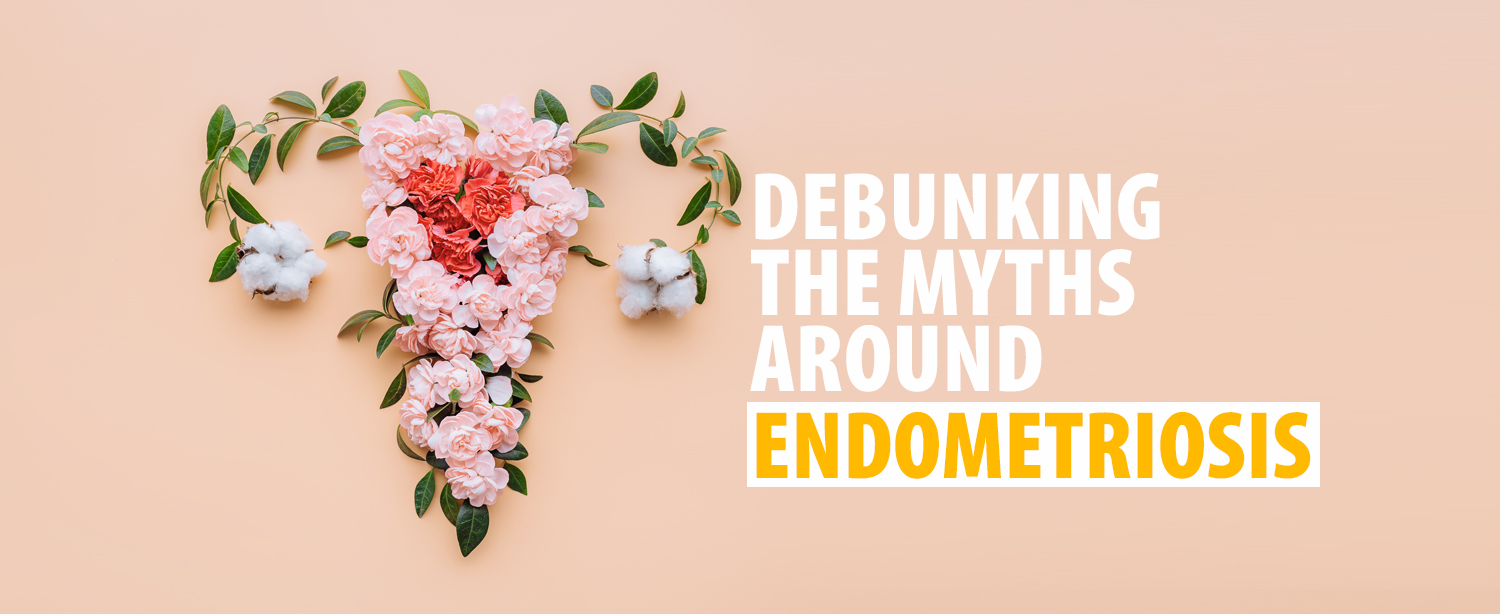Over 2.5 crore Indian women suffer from endometriosis which often remains undiagnosed and untreated due to limited awareness. This gynecological condition is also the leading cause of infertility among women. Endometriosis is a condition in which the tissue that is similar to the tissue that lines your uterus grows outside of the uterus. These cells react to hormonal changes that take place throughout the menstrual cycle, which can result in pain and inflammation in the tissue around them.
Symptoms of Endometriosis
The main symptom of endometriosis is pelvic pain, often associated with menstrual periods. Although many experience cramping during their menstrual periods, those with endometriosis typically describe menstrual pain that is debilitating and affects their quality of life. The common signs and symptoms of endometriosis include:
- Intense pain during periods
- Heavy vaginal bleeding
- Pain during sex
- Pain on opening your bowels
- Difficulty getting pregnant
Seeing a gynaecologist on time and discussing your symptoms and getting the required tests done is the key to diagnosing this condition and seeking medical care.
Common Myths & Facts of Endometriosis
Myth: Endometriosis is rare
Fact: Endometriosis affects up to 10% of women between the ages of 15 and 44. Despite how widespread it is, it usually takes eight years to receive a diagnosis. The only reliable method of diagnosis is through laparoscopic, or keyhole, procedure that allows visualization of the pelvic cavity.
Myth: Endometriosis is just painful periods
Fact: While painful periods are a symptom of endometriosis – it is far more than that. Contrary to normal periods, endometriosis pain isn’t just brought on by the uterus contracting; it’s also brought on by endometrial-like tissue that is growing in other places in the pelvic cavity and causing discomfort and inflammation. Because this tissue can develop in the bladder, bowel, and, in extremely uncommon circumstances, the lung, it is possible for pain and other symptoms to manifest throughout the body.
Myth: A gluten-free diet can treat endometriosis
Fact: Medical research doesn’t support the claim that use of a gluten-free diet can reduce your endometrial symptoms. Going gluten-free necessitates a major diet overhaul, which also entails cutting out many healthy foods like fortified wholegrain breads and cereals, which are a significant source of fibre and minerals. If you have endometriosis and are worried that you can’t tolerate gluten, you must consult your dietician.
Myth: If you have endometriosis, you can’t get pregnant
Fact: Most women suffering from endometriosis are concerned about their fertility and ability to become pregnant. The reality is that while there is a link between endometriosis and fertility issues, natural conception is still possible even in cases of severe endometriosis. Statistics suggest that 60–70% of people with endometriosis are thought to be able to conceive naturally.
Myth: Endometriosis patients must avoid dairy products
Fact: The reason behind this myth is for the widespread misconception that dairy causes inflammation, despite the fact that many dairy products are actually considered to be anti-inflammatory. There is not enough medical research available to support this claim. A well balanced diet filled with organic foods is recommended for endometriosis patients.
Myth: Surgery can cure Endometriosis
Fact: There isn’t a single treatment for endometriosis. After a diagnosis, there are numerous choices for managing the illness. While a surgical procedure aims to remove existing endometriotic tissue and scar tissue, it does not address the fundamental reasons for the growth of endometrial tissue.
Endometriosis treatment at Kokilaben Dhirubhai Ambani Hospital, Mumbai
Endometriosis is a serious condition that affects many women worldwide. Early detection and treatment are crucial in easing the symptoms. The Department of Gynaecology & Obstetrics at Kokilaben Dhirubhai Ambani Hospital, Mumbai has experienced and compassionate doctors who work with patients to diagnose and manage this condition. Do not suffer in silence for unusually heavy or painful periods. Consult our team for a detailed evaluation and further care. Please find below our website details:
https://www.kokilabenhospital.com/departments/clinicsatkh/endometriosisclinic.html https://www.kokilabenhospital.com/departments/clinicaldepartments/gynaecologyobstetrics.html


